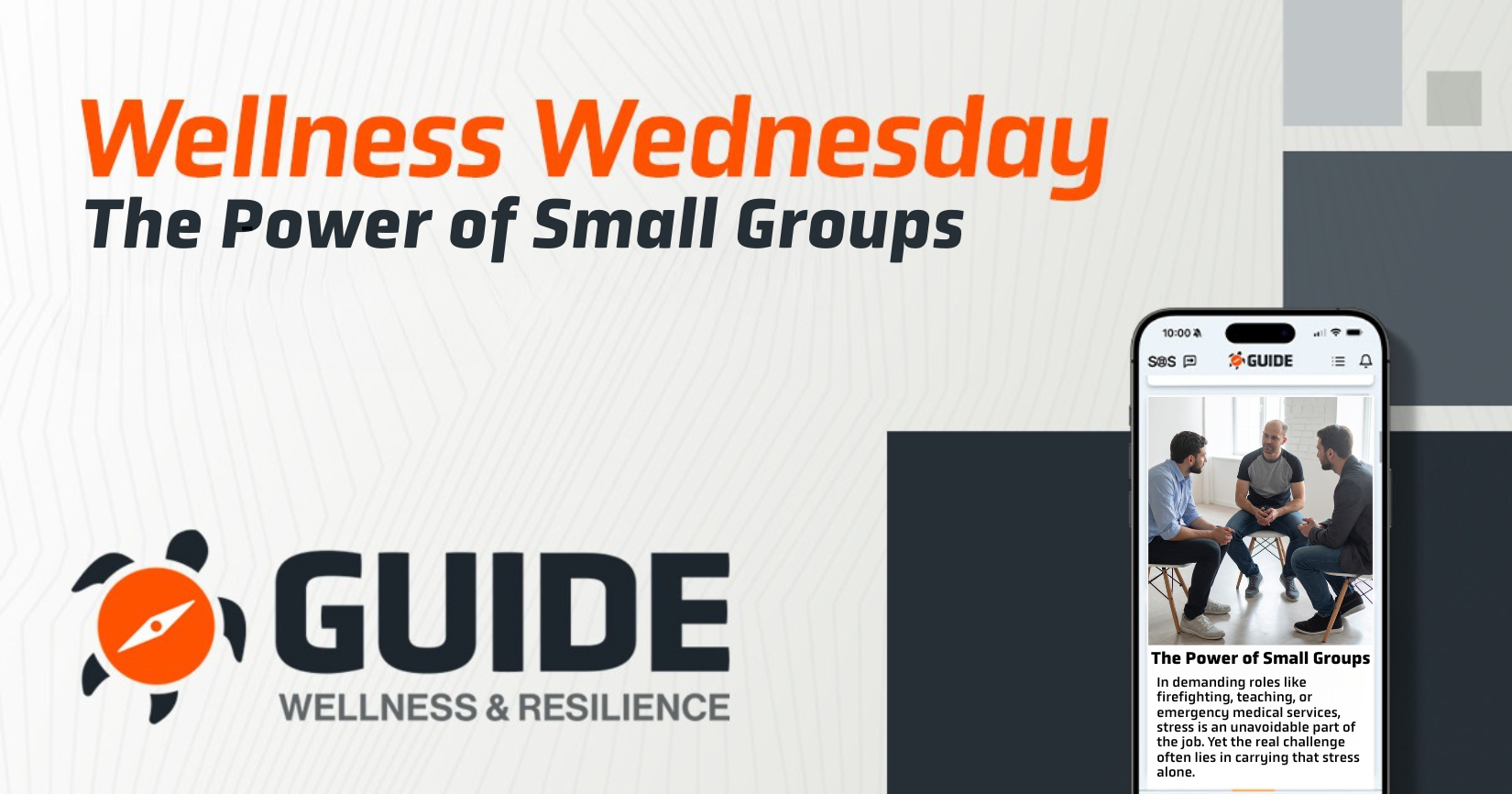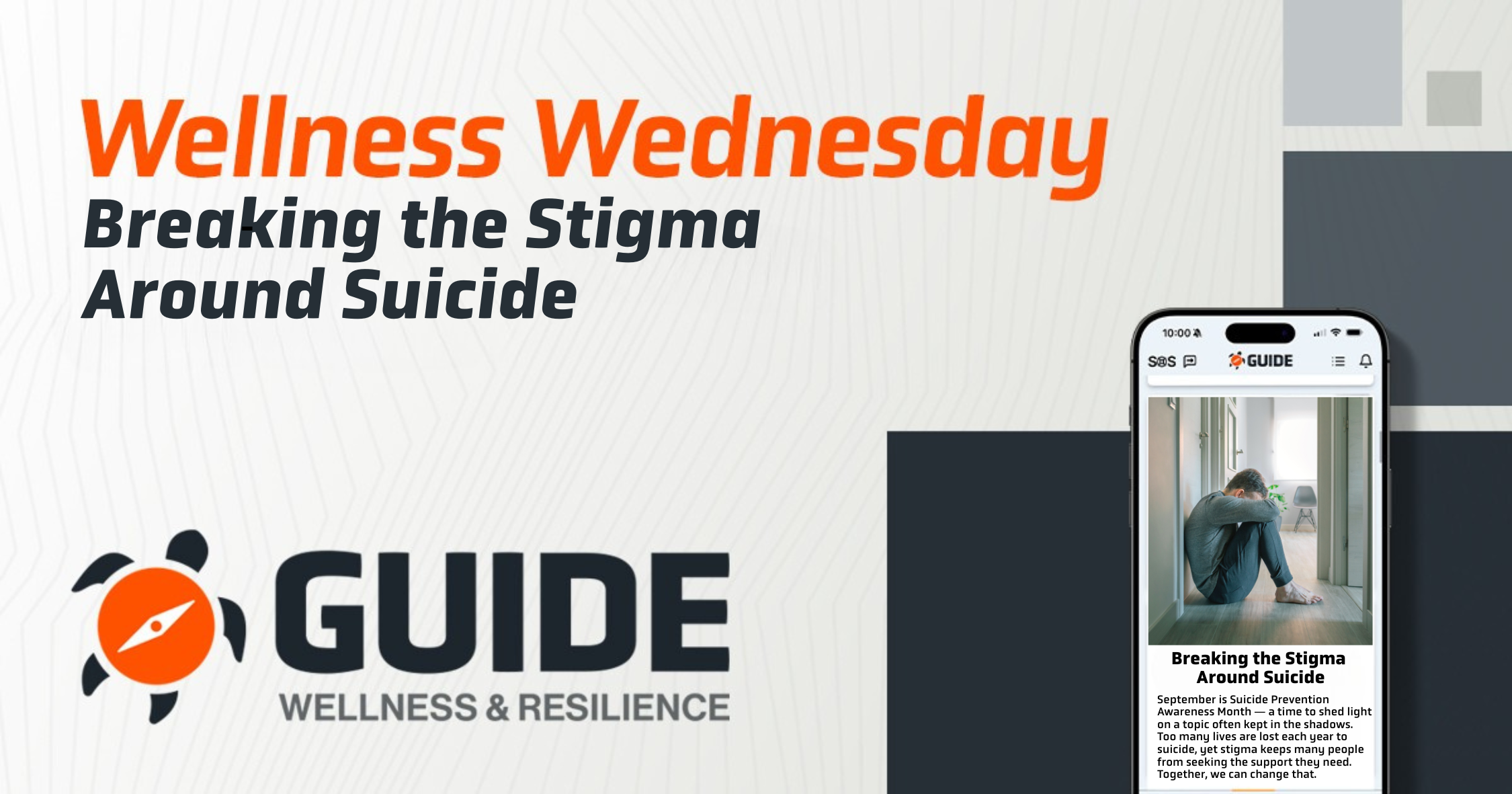Why Overdose Awareness Matters Today
Every year, International Overdose Awareness Day (August 31) serves as a global reminder of the devastating toll of overdose deaths. It is both a day of mourning and a call to action, an opportunity to reduce stigma, improve awareness, and strengthen community resilience.
For most, the observance is about recognizing the scale of the opioid crisis and remembering loved ones lost. But for first responders and veterans, this day takes on an even sharper meaning. First responders encounter overdoses on the front lines daily, bearing witness to repeated tragedies. Veterans, many of whom face chronic pain, PTSD, and mental health challenges, are themselves at heightened risk for substance misuse and overdose.
The intersection of overdose and mental health is undeniable. This blog explores how these challenges are connected, the unique weight they place on service professionals, and what can be done—individually and collectively—to foster resilience and change.
The Scope of the Overdose Crisis
- A Growing Epidemic: The United States continues to face staggering numbers, over 100,000 overdose deaths annually, driven largely by synthetic opioids like fentanyl.
- Communities at Risk: Rural towns, urban centers, and military-connected populations are all impacted, though in different ways.
- The First Responder Experience: Police, EMS, and firefighters routinely respond to overdoses, sometimes multiple times a shift. The emotional burden of reviving, losing, or repeatedly encountering the same individuals compounds stress.
For veterans and first responders alike, overdose is not just a statistic, it is personal, immediate, and deeply tied to the communities they serve.
Veterans, Mental Health, and Substance Risk
Veterans are disproportionately affected by overdose for several reasons:
- Chronic Pain and Prescriptions: Many veterans leave service with chronic injuries requiring long-term pain management. Prescription opioids, while medically necessary, carry dependency risks.
- PTSD and Self-Medication: PTSD, depression, and anxiety often lead to substance misuse as a coping mechanism.
- Isolation After Service: The transition out of military life can be disorienting, leaving veterans vulnerable to unhealthy coping mechanisms.
The link between mental health and overdose among veterans is clear: when mental health goes untreated, the risk of substance misuse rises.
First Responders and the Emotional Toll of Overdose Response
While first responders may not always face personal substance misuse, they experience the crisis through secondary trauma.
- Repeated Exposure: Responding to the same locations or individuals multiple times builds frustration, helplessness, and grief.
- Occupational Stress: Knowing that despite efforts, not every life can be saved.
- Stigma in the Ranks: A culture of toughness discourages open conversations about emotional strain, even as overdose calls increase.
The mental health toll is significant, often leading to burnout, compassion fatigue, or even substance misuse among first responders themselves.
The Stigma Barrier
Both veterans and first responders often struggle in silence because of stigma:
- Fear of Judgment: Admitting to mental health struggles or substance issues can feel like weakness in service-oriented cultures.
- Career Concerns: Many fear that seeking help will impact promotions, assignments, or their perceived reliability.
- Societal Misunderstandings: The public often frames overdose as a “personal failing” rather than a health crisis, which perpetuates shame.
Breaking down stigma is a critical step toward meaningful change.
Pathways to Resilience and Change
1. Peer Support Programs
- Trusted colleagues are often the first line of defense.
- Peer networks normalize conversations around overdose, stress, and coping.
2. Mental Health Services
- Confidential counseling for veterans and first responders should be accessible and stigma-free.
- Evidence-based treatments for PTSD and substance misuse reduce long-term risks.
3. Department and Organizational Leadership
- Leaders who openly address overdose awareness send a powerful signal that seeking help is encouraged, not punished.
- Observing International Overdose Awareness Day through roll call acknowledgments or department-wide messages validates the reality of the crisis.
4. Daily Check-Ins and Small Actions
- Using wellness tools like GUIDE’s daily mood tracking creates a habit of self-awareness.
- Simple check-ins reduce the weight of isolation and build early warning systems before issues escalate.
5. Community Connection
- Engaging in remembrance events or awareness campaigns strengthens solidarity.
- Shared acknowledgment helps both providers and communities heal together.
A Call to Action on International Overdose Awareness Day
This observance is not only about remembrance, it is about action:
- For first responders: Take time to reflect on the emotional toll of overdose calls and seek connection with peers or professionals.
- For veterans: Recognize the risks tied to pain management and mental health challenges, and reach out to the resources available.
- For leaders: Use this day to affirm the importance of mental health and resilience in your organization.
The overdose crisis is vast, but the solutions start with acknowledging its intersection with mental health. Each step toward awareness reduces stigma, saves lives, and honors those who carry the burden every day.
Turning Awareness into Action
International Overdose Awareness Day reminds us that the crisis is not abstract, it is lived, daily, by veterans, first responders, and the communities they serve. By tying overdose awareness to mental health, we not only honor the lives lost but also commit to supporting those who are still here.
Resilience is not built by ignoring the problem, but by facing it directly, reducing stigma, and creating systems of support. For first responders and veterans, the message is clear: you are not alone, and help is both available and necessary.
Learn how GUIDE can help: click here




